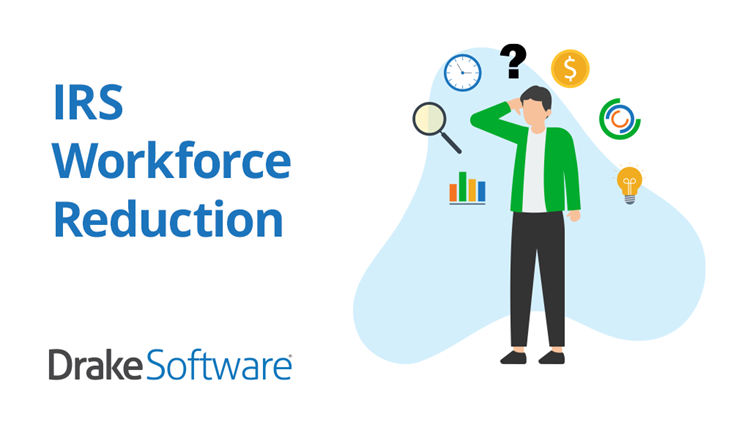IRS Workforce Reductions in 2025

IRS Workforce Reductions in 2025
What This Could Mean for Tax Professionals and Clients
The IRS has experienced significant staffing changes due to federal workforce reduction initiatives. While initial layoffs affected thousands of employees, recent developments indicate efforts to rehire and stabilize the workforce. These fluctuations come as tax professionals navigate the complexities of the 2025 filing season.
The agency's workforce adjustments could impact various aspects of tax administration, including processing times, customer service, and enforcement activities.
Key Outcomes of IRS Staffing Changes
Delays in Tax Processing
Fluctuations in staffing levels may lead to slower processing of tax returns and refunds—especially for paper submissions.
Customer Service Bottlenecks
Taxpayers and professionals might experience longer wait times when contacting the IRS for assistance.
Audit and Enforcement Impact
The capacity for audits and enforcement actions may diminish, potentially affecting compliance and revenue collection.
Emerging Policy Implications: IRS Staffing and the Debt Ceiling
House Republicans are expected to use the reconciliation process to raise the debt ceiling, which limits how long they can negotiate priorities within the package. In this context, fewer IRS staff could ironically hasten the timeline for reconciliation legislation, reducing political leverage and the opportunity to negotiate provisions related to tax credits, business relief, and more.
What Tax Pros Can Do to Prepare
- Prepare Clients for Refund and Response Delays
What to say: “Due to IRS staffing changes, processing times for refunds and responses to mailed correspondence may be longer than usual.”
Tip: Share estimated timelines early and offer tools for status tracking via your tax software or the IRS’s online portals.
- Set Realistic Expectations for IRS Communication
What to say: “Getting through to the IRS by phone or resolving issues quickly may take longer, so let me know if you need anything prior to calling the IRS.”
Tip: Encourage clients to complete Form 2848 so you can act on their behalf. To qualify, tax preparers should complete the Annual Filing Season Program (AFSP) for limited representation rights.
- Emphasize Accuracy from the Start
What to say: “With fewer IRS agents to help fix issues, we need to get your return right the first time.”
Tip: Run software diagnostics and pre-checks before submission.
- Guide Clients Through Digital Tools
What to say: “We’ll use every available tool I have to track returns, payments, and transcripts—this helps bypass IRS call center delays.”
Tip: Give clients a quick walkthrough of the IRS “Where’s My Refund” and “View Your Account” tools.
- Support Strong Recordkeeping
What to say: “Although fewer audits may occur short-term, the IRS may focus on high-risk areas—so keeping good records is still essential.”
Tip: Recommend cloud-based folders or apps to help clients securely store W-2s, 1099s, and receipts.
Why the AFSP Matters in 2025
With communication delays expected, having the authority to directly represent clients before the IRS is more valuable than ever. While only Enrolled Agents (EAs), CPAs, and attorneys have unlimited representation rights, participants in the AFSP gain the right to communicate with the IRS regarding their client’s returns and respond to certain notices.
Encouraging clients to sign a Form 2848 and earning your AFSP Record of Completion could be a simple but powerful way to enhance your practice this year.
Let clients know: delays are expected, but with preparation, the road ahead doesn’t have to be bumpy. Tax professionals who plan ahead, educate clients, and leverage representation rights will be in the best position to offer value and peace of mind through the 2025 filing season.
Note: For the most recent updates on IRS operations and staffing, please refer to the official IRS Newsroom: https://www.irs.gov/newsroom.
*Another post about AFSP will follow*



